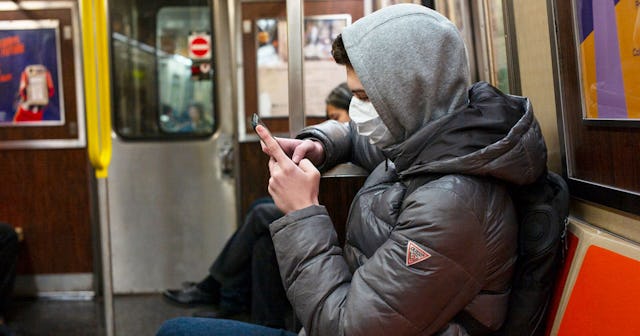Lack Of Paid Sick Leave For U.S. Workers Will Make It Easier For Coronavirus To Spread

The lack of laws surrounding paid sick leave in the U.S. will likely make it easier for coronavirus to spread
There are only a handful of wealthy countries in the world that don’t have laws mandating that workers get paid time off when they’re sick, and the U.S. is one of them. Amid the rapid global spread of the coronavirus and COVID-19, the deadly respiratory illness it causes, experts are looking at how that lack of sick leave is likely to help the virus spread in the U.S., much faster than it would if people were able to stay home when sick.
Around 25 percent of U.S. workers have no paid sick leave. Many of them are in lower paying jobs, which means that when they’re sick, they can’t afford to take unpaid time off. That setunds them trudging into work even when they’re ill, and considering many of those workers are in industries that put them in contact with tons of people, like fast food workers and taxi drivers, this can contribute majorly to the spread of sickness.
To see how the lack of mandated paid leave in the U.S. might affect the spread of the coronavirus, the Washington Post analyzed a 2017 study on the spread of the flu in places where sick leave was mandated versus in places where it wasn’t. Researchers compared San Francisco, Washington, Seattle, and New York, all places that have passed their own laws guaranteeing sick leave to workers, to cities where workers have no such guarantee. They looked at Google Flu Trends, a project that tracks flu-related searches by location.
What researchers found was shocking. In cities where paid leave policies were put in place, flu-related searches dropped immediately, sometimes by as much as 50 percent compared to cities where workers had no guarantee of paid sick leave. At the end of the first year after sick leave policies began, searches were down an average of 40 percent in those cities versus cities with no sick leave laws.
As the coronavirus reaches more and more people (and causes more and more deaths), the best way to control it is good public health policy, which means basics like washing your hands, avoiding crowded places, and staying away from other people if you’re sick. But in the U.S., when so many people can’t afford to stay home even when they have fevers and other symptoms, that just isn’t possible. How that will affect the continued spread of the coronavirus remains to be seen.
This article was originally published on